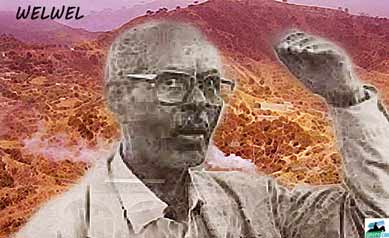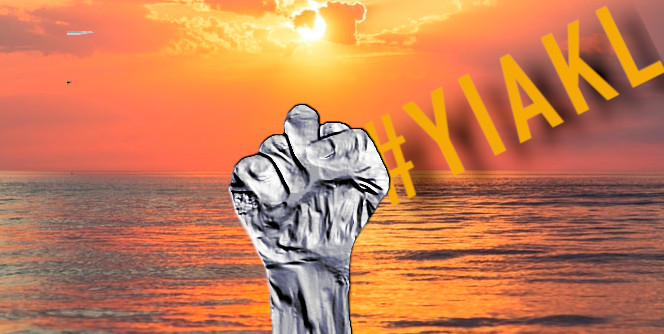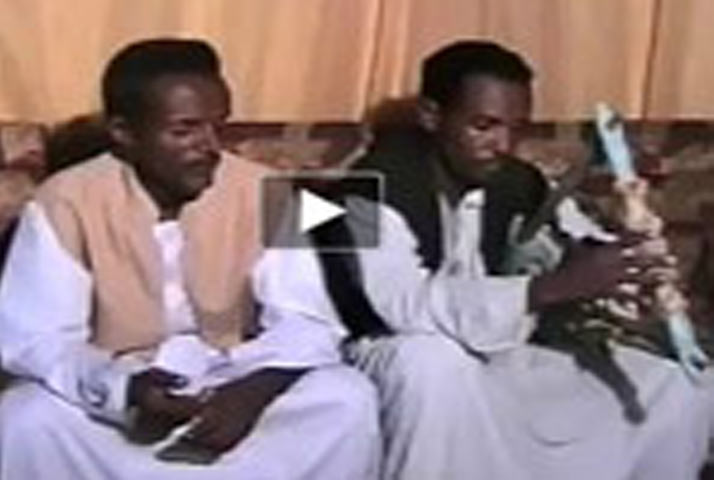Eritrean Political Equation: Dynamics Of Constants And Variables
 My awareness that I’m delving into a very difficult and complex subject does diminish my enthusiasm to share my modest opinion with the readers. The motive behind this endeavour is primarily a quest for a badly needed sense of order in the chaotic state of the Eritrean politics. It is no doubt a magnanimous task that cannot satisfactorily be addressed by a single individual but demands a collective effort by all concerned citizens with talents. Even if necessary, we need to outsource professional help by soliciting consultants for that purpose. This would provide the necessary assistance in restructuring and remoulding our political framework of ideals on a well established and recognised political forms. I look forward to seeing that in the planned National Congress to accomplished, or at least to lay the foundation so that others can build on it, develop it further, and complete our future events with perfection.
My awareness that I’m delving into a very difficult and complex subject does diminish my enthusiasm to share my modest opinion with the readers. The motive behind this endeavour is primarily a quest for a badly needed sense of order in the chaotic state of the Eritrean politics. It is no doubt a magnanimous task that cannot satisfactorily be addressed by a single individual but demands a collective effort by all concerned citizens with talents. Even if necessary, we need to outsource professional help by soliciting consultants for that purpose. This would provide the necessary assistance in restructuring and remoulding our political framework of ideals on a well established and recognised political forms. I look forward to seeing that in the planned National Congress to accomplished, or at least to lay the foundation so that others can build on it, develop it further, and complete our future events with perfection.
The paradoxical relation between the continuously changing variables in an active interplay, with the intrinsic, stable and relatively constant integral factors of the socio-political processes renders the task of explicitly formulating a plausible theory of the processes very difficult. The constants of the socio-political processes discussed here are in the relative and not in an absolute sense as in the context of a mathematical and scientific concept of the term. Constants here refer to all factors that affect the social and the political processes that relatively undergo a very little change in the long term. Generally speaking they stand in our case for factors relating to the land and the people of Eritrea. By people we mean, all factors constituting the Eritrean diversity: ethnic groups and their cultures, languages, religions, their interactions with each other and with their extensions across borders and the influence of the outside world and impact on them. The land refers to the territories where each group lives, the geography, the weather and the geopolitical position of each region and the country as a whole.
The variable factors considered here are summed up as the ways and means devised by man to utilise or interact with a part or the whole of the constant factors in realising certain objectives of interest. In other words, policies, tactics, strategies, and organisations that can be used to that end, fall under this category. By stating this no one claims that all factors of relevance that have an impact in the socio- political processes have been included or exhaustively covered. This is merely an endeavour hoping that it would open the venues wider to more serious and fruitful contributions to such a crucial subject.
In this attempt, I would briefly look into how the interactions by man with these factors have affected the life of people and their relations with each other in the course of our recent history. Since time immemorial, before the advent of the colonial powers, our ancestors had been coexisting relatively peacefully in what we call Eritrea today. This calmness had been only interrupted by interspersed and intermittent minor skirmishes. Each ethnic groups/s lived in a certain territory, led a specific way of life, and practiced its religion, rituals, culture and language freely in full and mutual recognition and acceptance by the neighbouring entities. They were not of course secluded, living in completely isolated islands. They interacted with each other and even some times they made alliances to overcome and confront common dangers when deemed necessary. The secret behind such voluntarily upheld peaceful state of coexistence was the strict observance of non written traditional laws. Laws based on the acceptance of each others’ identities, the recognition of the full rights of each group to land ownership, specific way of life, customs and traditions, religions and languages. This was the dictum that regulated the interrelations and interactions of the different groups with each other. It was respected, observed and reciprocated by all. Peoples’ interactions and relations at those times, with the constant factors, were carefully measured and calculated to the point of not disturbing the equilibrium that maintained the balance of interests of all concerned. Thus, they succeeded in preserving this wonderful state of coexistence for a long time without enforcement from any external power apart but from the internal powers of traditions, customs and norms. It seems we failed where our ancestors succeeded, a lesson we failed to learn and a one we badly need to reclaim to revitalise ourselves.
Eritrea, as known today came into being during the colonial era as the result of the Western colonial powers’ scramble for colonies in Africa. That was the time when a central enforcement power with laws that ruled all was imposed to realise and preserve the colonialist’s interest. The Italians, who intended to settle for good, were mainly preoccupied in exploiting the fertile lands, mineral wealth, building small cottage industries and the necessary infrastructure to the benefit of the settlers and their motherland. To enhance their grip over the country and its people with the minimum effort required, they did little to disturb the rooted traditional laws and relations that used to maintain the social peace and order among the subjects. Any limited upheavals against land confiscations and other infringements were dealt with promptly and in a heavy handed way to discourage others from following suit. Thus, the Italians maintained peace and order by preserving and taking advantage of the status quo of the time.
The British colonial power that took over from the Italians was notoriously known worldwide for its policy of divide and rule. This policy disrupted the customary rules and good relations that reigned among the people for a long time. They tried to realign society along tribal, regional and religious lines creating fault lines that had never existed before. Political parties of conflicting interests were set-up polarising the society into antagonistic blocks. This constituted the background for the turbulent self determination era which left scars and damaged the social texture and relations that have not yet healed completely.
The Ethiopian feudal- theocratic monarchy flagrantly exploited the legacy of their predecessors, the divide and rule policy, with strong focus on the religious factor. This exacerbated the already polarised situation by dragging the normally impartial religious institution, the Coptic Church into the political arena and made it take sides in the political conflict. Not only this, it was also made to sponsor the Ethiopian government’s violent politics. The Ethiopians unleashed campaigns of hate and terror against groups and individuals who supported independence and spread fear and havoc in the country through their local collaborators. The after-effects of that have over shadowed the Eritrean political work ever since.
The Eritrean armed struggle began with a background of a society so deeply divided along religious fault lines. Some oblivious of this fact unfairly accuse the ELF of intentionally choosing to be mainly Muslim dominated organisation at its inception. This was also the pretext that Isaias and his group that used it at later time to form the EPLF. The purpose of that was mainly to counterbalance the effect of the ’Muslim’ ELF, even though by that time, the later completely had evolved into a full fledged national front. The ELF or the EPLF and other political factions used the tribal, regional, cultural and even religious factors in their competitive propaganda campaigns against each other; they built their organisations by using such campaigns covertly or overtly, intentionally or unintentionally, for the determent or for the betterment of the struggle. A case in point, when at the early stages the ELF divided its forces into four regional units. The aim was to help the recruitment of potential fighters and expand the struggle to wider areas which were then un-accessed. Unfortunately this turned out to be an increasing tribal attritions, and created warlords until the damage was recognized and the divisions were finally abolished. The Nehnan Elamanan proclamation was another example of a gross and an intentional abuse of a religious factor for a political end by a power thirst group. The consequences of these faulty policies were reflected by the devastating intermittent fraternal wars that resulted in the unnecessary waste of lives and its negative effect on the national unity. Luckily for the country, the sheer momentum of the will of achieving independence kept driving the struggle to victory despite the killing plunders committed in the course of the struggle era by all fronts that were strong enough to stop the process.
The Eritrean regime is a live testimony of a crying abuse of power in encroaching upon the sanctity of life and rights of individuals and groups and rudely intruding into every aspect of the constant factors of the socio- political processes. It confiscated peoples land, curtailed their religion, cultures, languages, civil and political rights and freedoms. Such intrusions have badly damaged the social coherence, the national unity and the peaceful coexistence that had prevailed. This would certainly lead the country and its people to a catastrophic end, the bad omens of which are already looming in the horizon if things continue unchecked.
The opposition groups, either by virtue of a legacy passively inherited from the past era or actively acquired through their own action or failure of action, are not innocent, they bear their share of the malpractices so far committed. The mere fact that they are split into numerous small and conflicting factions is a testimony to a seriously defective situation.
The panoramic account of our past and recent history, our interactions with the constant factors of the Eritrean peoples diversity and land, reveals that there has been an anomaly in the relation and a flagrant abusive manipulations of these factors. Each time a major problem arose, we failed to strike the right balance between the interests of all stakeholders. Therefore any viable solution to our chronic problems, particularly concerning national unity, must be based on accepting and recognizing the Eritrean diversity as it is and be careful in maintaining the sensitive equilibrium of the state of relations. We need to adopt policies, social contracts, laws or systems that preserve the rights of individuals as full citizens of the country and that of national groups in ruling and administering themselves within the sovereignty and unity of the country.
The reality now is very critical and any one who misreads that properly or underestimates its consequence, be it a political organisations or concerned citizens, is considered politically naive. The only choice is either we all voluntarily accept and agree on the principles of justice, democracy and rule of law that guarantees full rights for all citizens and national groups, in equal footing in future Eritrea, or end up in a disaster. The former is the only way to preserve our national unity—for the present and for the future. The alternative is that any group may take the liberty in choosing its own type of solution; and the pending danger of disintegration is in waiting.




Awate Forum